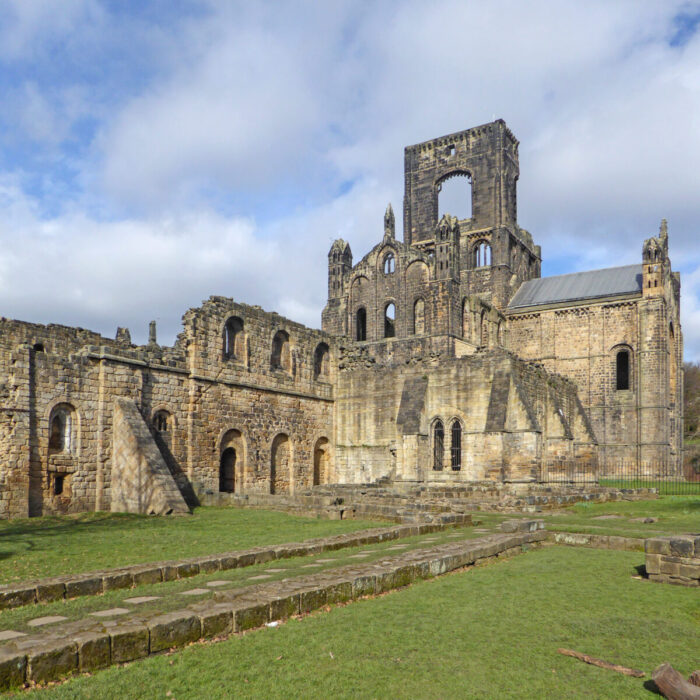Kirkstall Abbey

Tim Green from Bradford, CC BY 2.0 <https://creativecommons.org/licenses/by/2.0>, via Wikimedia Commons
Tuesday 02 July
Depart: Parkinson Steps: 13.30
Arrive: Parkinson Steps: 17.00
Price: £25.00
One of the best-preserved examples of a medieval Cistercian monastery in England can be seen within two miles of the International Medieval Congress. A daughter-house of Fountains, Kirkstall Abbey is remarkable for both the quality and extent of its preservation. Large parts of the church, chapter house, cloister, south range, and abbot's lodging survive up to roof height. Complementing these impressive standing remains is the guest house, a rare survival in monastic precincts, which has been excavated extensively so that its structural developments are understood in great depth.
Despite its extensive architectural and archaeological remains, Kirkstall has received little scholarly attention, and the importance its material culture holds for understanding medieval religious life has consequently been neglected. However, the guesthouse has recently been the focus of extensive archaeological and historical enquiry and a subsequent AHRC-funded cultural engagement project has ensured that the findings of this research will be made freely available. This work has highlighted the importance of the guesthouse for the social life of the abbey, revealing how the monastic community provided hospitality to guests and entertained them within the precinct. New information concerning finds from the guesthouse, such as dress accessories, provides greater clarity regarding the identity of guests and what they did while at the abbey; the animal bones, meanwhile, provide an indication of the food eaten by guests and enable comparison with monastic fare. As a result, the guesthouse can now be set in the wider context of Kirkstall’s structures, which have been the subject of a number of modern restorations, which permits a more holistic appreciation of the life in the abbey during the Middle Ages.
The tour provides an overview of the history of the abbey from its establishment in 1152 and gives particular attention to the guesthouse and its importance in monastic life.This excursion will be led by Katherine Baxter (Curator of Archaeology, Leeds Museums & Galleries).
For further information about Kirkstall Abbey, please visit: www.leeds.gov.uk/museumsandgalleries/Pages/Kirkstall-Abbey.aspx
